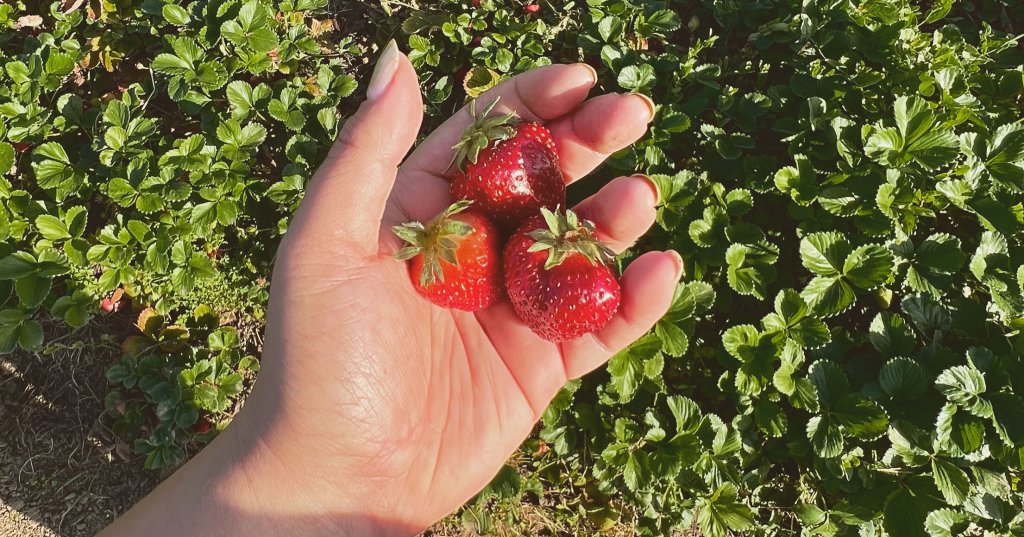Soil-Born Stories: Celebrating National Farmer’s Day
Farmers are the backbone of our food system. Today, we celebrate the families, friends and neighbors whose livelihoods feed the public.
National Farmer’s Day holds space for the public to express gratitude for the hard work that sustains our nation. Although we honor farmers every day at Noble West, we wanted to take this opportunity to say a heartfelt “thank you” for their strength and support.
We’re fortunate to work closely with leaders in the food and agriculture industry, and we’ll always cherish the wisdom they’ve shared with us.
What Westies Want You to Know On National Farmer’s Day
We sat down with our team members to chat about their ever-evolving thoughts on farming—and we’re proud to share our mosaic of perspectives with you.
How has your outlook on farming changed since working at Noble West?
Tessa: One of the most profound revelations for me since beginning work in this field was the realization that family farms form the backbone of California's agricultural landscape. Before joining Noble West, I held a rather narrow view of farming operations, envisioning them as corporate entities with distant ownership and isolated growers.
However, the statistics speak a different truth. Family farms account for a staggering 93% of all California farms, oversee 81% of the land in farms and generate 71% of the value of all agricultural products sold.
I now understand that farming is not just about profit margins and crop yields; it's about preserving traditions, passing down knowledge through generations and cultivating a profound connection to the land. It's a testament to the enduring spirit of family and community in agriculture. I feel so honored to work for this agency and to continue to share the story of this beautiful practice that impacts all of our lives every single day.
Sarah: I've always deeply cared about food, from how it's grown to where it's from. It's easy to love your local farmers’ market. You buy from your lettuce gal and mushroom guy, have a hot take on packaging and even get what the difference is between non-GMO and organic.
But what has truly been enlightening for me during my time at Noble West is the stuff that isn’t as "sexy" to talk about—such as the efforts of clients like the CA Department of Pesticide Regulation to help promote responsible usage of pesticides, partners like TOMRA and their clients who are seeking more sustainable and innovative processing solutions or our variety of friends in the ag tech space, like AgCode, who are working to support growers in developing efficiencies and better automating parts of the farming process.
In my opinion, these are the spaces that don't get highlighted as often, and I'm so grateful to be a part of a company that seeks to tell all the soil-born stories.
What insights and stories do you wish the public knew about farming?
Sierra: While conducting research for Sierra Agra, what struck me the most was the profound disconnect many of us have about our food sources. In an age of convenience, it's easy to overlook the journey our food takes from farm to table, and food loss and waste are all too common in our current climate.
But food loss and waste are not just unfortunate trends. They are symptoms of a larger issue: the disconnect between consumers and the agricultural roots of their meals. It's not just about recognizing where our food comes from; it's about recognizing the people, the stories and the passion woven into every harvest.
Behind every meal is a dedicated farmer pouring their heart and soul into cultivating the ingredients we often take for granted. Understanding this journey is not just about appreciating the hard work—it's about acknowledging the very essence of sustenance. By understanding the impact of our food choices, we not only honor the farmers but also contribute to a more sustainable and empathetic food system.
How has your work in the food and agriculture sector impacted your daily life?
Amy: The growing awareness of climate change and environmental sustainability has really influenced how I view agriculture. Sustainable farming practices—organic farming and regenerative agriculture—continue to gain popularity as consumers seek food options that are produced with minimal environmental impact. These practices have significantly impacted how I shop. Now, I always find myself looking at labels for how my food is produced and sourced.
Working directly with these groups has also humanized how I see farmers and their role in our food system. I have greater empathy and stronger views on food justice and equity. It makes me feel good producing work to support these critical on-the-ground members of our food system.
We Westies know that farming is a holistic practice. It takes passion, purpose and adaptability—three characteristics we hope to emulate in all of the work we do at Noble West.
As we look toward the future of farming, we’ll ground ourselves in gratitude for the work that’s been done for generations and generations. We’re grateful to be part of the sector’s pursuit of progress.




